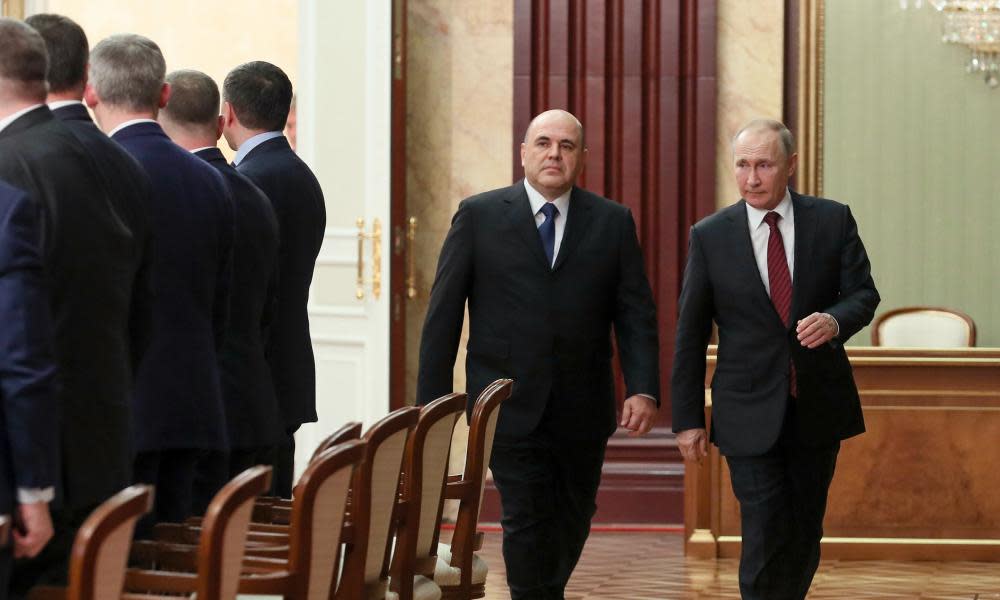Top Russian ministers keep posts as Putin appoints new cabinet

Vladimir Putin has appointed a new cabinet in the latest step of a broad government shake-up seen as the early groundwork for his eventual exit from the presidency, if not from Russian politics.
The lineup introduces a new stable of deputy prime ministers and shows considerable turnover among ministries tied to social affairs and cultural policy.
Prominent ministers tied to Russia’s security and foreign policy have retained their positions, including the defence minister, Sergei Shoigu, and the foreign minister, Sergei Lavrov, as well the interior minister, Vladimir Kolokoltsev. The economy minister, Anton Siluanov, has also retained his position in the cabinet, although not as a deputy prime minister.
New ministers were named for justice, education, health and economic development. There were also new heads for the ministry of sport, which has struggled to manage the fallout from Russia’s doping scandal, and the ministry of culture, which had tried to fight the foreign influence of Hollywood and has backed patriotic films made in Russia.
Putin announced last week that he would introduce constitutional amendments that would largely weaken the power of the presidency, and then abruptly announced the resignation of the government, including the long-time prime minister, Dmitry Medvedev.
Medvedev’s replacement was Mikhail Mishustin, Russia’s top tax official and a technocrat seen as removed from the political infighting around the Kremlin.
Putin also said he would limit presidents to two terms in office, effectively affirming his plans to step down in 2024 under term limits. He is likely seek a new position in government to retain influence over the system he has built.
Speaking to military veterans during the weekend, Putin rejected a return to the Soviet-style system of leaders for life, saying it would be “very worrying” to go back to a situation where leaders died in office without “ensuring the necessary conditions for a transition of power”.
The speed of the shakeup has surprised many. Constitutional amendments are due for a vote in parliament later this week, driving speculation that the government may also be preparing for early elections.
Related: Putin's plans are all about keeping his hands on levers of power
The draft amendments, which Putin sent to the parliament on Monday, would give new constitutional status to the state council, an advisory body that analysts believe may become a new power centre for Putin after 2024.
The state council would “set the main directions of the domestic and foreign policy of the Russian Federation”, the draft of the amendments said. But it remains to be seen what would be the exact scope of its powers, as well as whether it could direct the president to execute certain policies or if it would remain as more of an advisory body.
The amendments did less to limit the powers of the presidency than was initially expected after Putin’s speech, appearing to leave the presidency with key powers to direct security and foreign policy. A public vote on the amendments has been scheduled for April, and the Kremlin has said it will not be a formal referendum.

